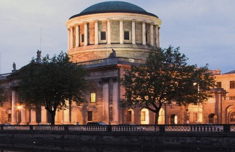A Victory for the principled development of the law
 If you trespass on my land, and make a profit from that trespass, what should the measure of damages be? It is a very important question, but the answer is disputed, and it had not been directly discussed at Irish law, so far as I know, until it was recently addressed by McMahon J in Victory v Galhoy Inns [2010] IEHC 459 (16 December 2010).
If you trespass on my land, and make a profit from that trespass, what should the measure of damages be? It is a very important question, but the answer is disputed, and it had not been directly discussed at Irish law, so far as I know, until it was recently addressed by McMahon J in Victory v Galhoy Inns [2010] IEHC 459 (16 December 2010).
Trespass is a civil wrong (a tort), and the aim of damages for such wrongs is to compensate the plaintiff for the loss caused by the wrong: to put the plaintiff “in the same position as he would have been in if he had not sustained the wrong for which he is now getting his compensation” (Livingstone v Rawyards Coal Co (1880) 5 App Cas 25, 39 (Lord Blackburn); Smith New Court Securities v Scrimgeour Vickers [1997] AC 254, [1996] UKHL 3 (21 November 1996); Carey v Independent Newspapers [2003] IEHC 67 (7 August 2003)). However, the law has recognised that where a defendant has made a profit from a civil wrong, the damages can be directed instead to stripping the profits from the defendant. For example, in Hickey v Roches Stores (High Court, unreported, 14 July 1976) (pdf) Finlay P held
…Where a wrongdoer has calculated and intended by his wrongdoing to achieve a gain or profit which he could not otherwise achieve and has in that way acted mala fide then irrespective of whether the form of his wrongdoing constitutes a tort or a breach of contract the Court should in assessing damages look not only to the loss suffered by the injured party but also to the profit or gain unjustly or wrongly obtained by the wrongdoer.


 Following on from my post on
Following on from my post on 
 In the US, most
In the US, most